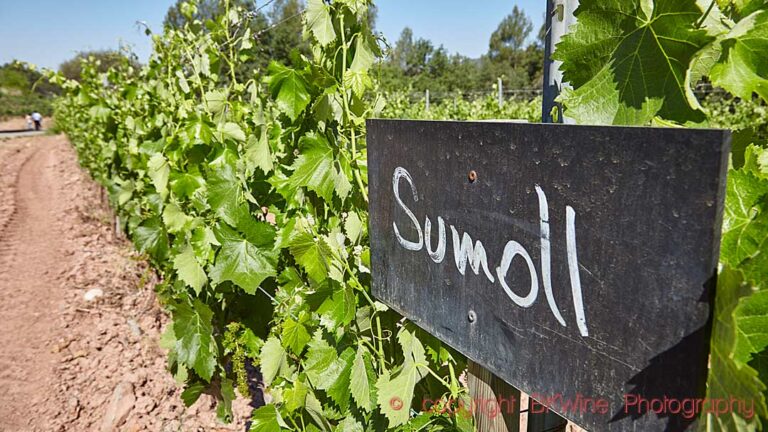

 Are we wine consumers ready to stand up for our environmental commitment?
Are we wine consumers ready to stand up for our environmental commitment?
Or are we merely paying lip service?
A trend for 2020 will undoubtedly be the continued focus on organic and sustainable wines. Many countries’ wine drinkers clearly show that they want more and more organic wines. Demand is expected to increase dramatically in the coming years. We will probably see more producers switching to organic farming for commercial reasons rather than conviction.
Up to now, it has been very uncommon for producers to convert to organic for commercial reasons; those who switch have almost invariably been motivated by “it is better”. But with today’s high demand, more producers will probably convert because “it sells better”.
This is well illustrated by the increasing focus on catchwords such as organic, sustainable, natural etc in the marketing of wine, although sometimes with dubious connection to reality.
There is no way to get rid of spraying though, even if you are organic. Copper and sulphur are included in all organic producers’ arsenal to protect his vineyards. And some complain that the organic growers drive their tractors more often with increased carbon dioxide emissions as a result.
Being careful with treatments in the vineyard is only part of the sustainability work, but it is an important part. And perhaps the biggest stumbling block in organic viticulture. What if you could dispose of spraying, if not completely, then almost?
That may happen in the future, but then we are not talking about this year, probably not even the next five to ten years. But there are, and have been for some time now, grape varieties that drastically reduce the need for spraying against fungal diseases, Europe’s main problem in the vineyard.
Germany (a predecessor) has its own, France has its own, Italy has its own. They are called resistant grape varieties, sometimes called “piwi”, and are crosses between a grape from the European Vitis vinifera family and a (usually) American variety with good resistance to said diseases. But the aim may also be to produce grape varieties with good tolerance to high or low temperatures. They have been crossed back to Vitis vinifera a number of times so they often have quite a lot of European blood in them, which should guarantee a good taste profile. In Italy, these grapes sometimes have names that are misleadingly similar to one of the parents: cabernet eidos, cabernet volos, merlot kanthus, sauvignon kretos, etc. Is this a way to fool the wine drinker or a clever way to downplay a dramatic change in the situation?
France has (so far) chosen more neutral names that mean nothing except that it is completely unknown grapes.
Read more in one of the news briefs about the four new US resistant grape varieties, which have taken 20 years to develop and have now been launched, a work that could have gone much faster if gene technology had been accepted in the wine industry.
What is best? To sneak these grapes into the wines without people noticing it or to proudly trumpet on the label that this is an artaban (a French crossing), and therefore an environmentally friendly wine? How will people react? How curious/tolerant/serious are we consumers about sustainability? Enough to accept new grape varieties from our favourite districts?
This is the big test.
But really, why not? Unknown, local grapes from countries such as Greece, Moldova, Georgia, Portugal and whatnot are the highest fashion. Is artaban (France) stranger than viorica (Moldova)?
So far, Europe’s wine laws are putting obstacles in the way of (most of) the resistant grape varieties. But perhaps it will turn out that all these incredibly detailed rules around which grapes and sometimes in what proportions that may or may not be used, that many European wine regions have today, are completely out of touch with reality. Instead, each producer plants the grapes that require the least spraying and best meets the conditions that exist around that particular vineyard. Is it the future? Good? Or bad?
At least, it doesn’t really feel like we’re there yet.
Now on to two other things:
We felt incredibly honoured when we learned that our latest book “Languedoc-Roussillon, the wine from the south of France ” had been named “Book of the Year, All Categories” by the Gourmand Awards in Sweden. It was celebrated, along with many other award-winning writers, at a dinner at the French Ambassador’s residence in Stockholm. It felt like an extra special honour to be there together with one of the authors of “Factfulness”, Anna Rosling. That book received a very special mention by Gourmand, very well deserved for such an important book in a world where too many people do not care about facts and truth.
And then… it’s time to think about your future wine tours.
There are still some places left on some of our spring tours. Do not wait too long to book your place.
This autumn we have three outstanding wine tours on the program, to Bordeaux and Champagne.
We have also already published the detailed programs for the winter of 2021, perhaps something to think about now in the winter cold. Wouldn’t it be wonderful to come to Chile-Argentina, South Africa or New Zealand next winter?
But how do you choose who to travel on a wine tour with?
Should you go wine touring on a “sales” trip with some who mainly really wants you to buy wine from certain producers? Or should you go wine touring with someone who knows a lot about wine and about wine trips, maybe someone who has written ten wine books?
Should you travel with someone who has an international reputation in the wine industry and visits 200 wineries every year? Or with someone who puts together a tour from the desk in the office from time to time?
Everything has its advantages and its drawbacks.
But we hope that someday you choose to travel with us because it would be so fun to meet!
Britt & Per
PS: Recommend to your friends to read the Brief!
What’s on at BKWine Tours
- South Africa, February 15 – 23, 2020
- New Zealand, March 9 – 24, 2020
- Bordeaux, April 15 – 19, 2020
- Champagne, September 16 – 20, 2020
- Bordeaux, September 30 – October 4, 2020
- South America, Chile and Argentina, January 18 – 31, 2021
- New Zealand, February 18 – March 5, 2021
- South Africa, March 17 – 26, 2021
For more information please contact us on email or on phone (we’re on French time), or go to our wine travel site on www.bkwinetours.com!
We also make custom designed wine tours – on-demand tours for you and a group of friends, for your company (maybe to scout new winegrowers?), for a special event… We can combine winery visits and wine touring with other activities: gastronomic workshops, visit to an oyster farm, truffles hunting, cheese making, and more. More info on the custom designed and bespoke BKWine wine tours and travel here!
Read our book(s)
We have written several wine books, nine at the last count. One of them has been translated to English; the others are (so far) only available in Swedish. This is the one that is available in English: Biodynamic, Organic and Natural Winemaking, Sustainable Viticulture and Viniculture
All our books are on wine, but on different subjects: wines of the Languedoc, wine growing and wine making, the wines of France, Tuscany, Bordeaux, Piedmont, Burgundy, Champagne. Several have won prestigeous prizes and awards. Read more on our wine books.
[box type=”alert” size=”large” style=”rounded” border=”full”]This is just the introduction to the latest issue of the Brief. Subscribe to the BKWine Brief and you will get the whole edition in your mailbox next month.[/box]










